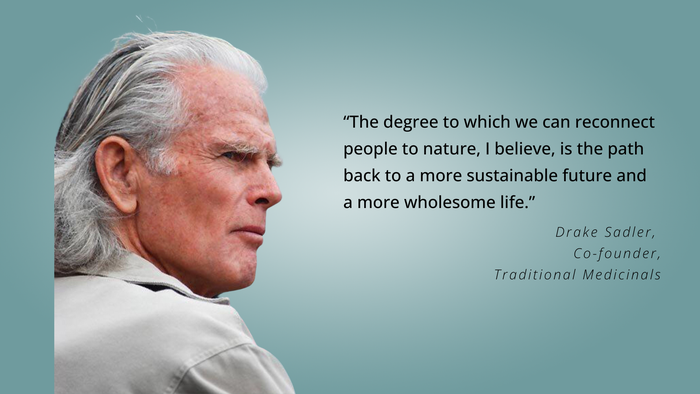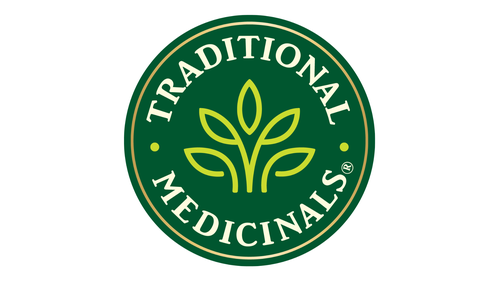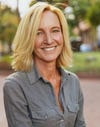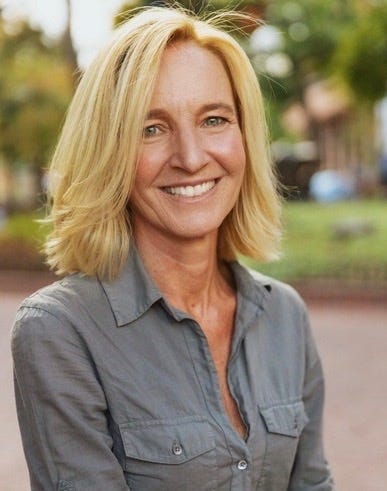
A shorter version of this article originally appeared in the Nutrition Business Journal Herbs and Botanicals issue.
Traditional Medicinals' co-founder Drake Sadler has been leading the company since it was founded in 1974—longevity that’s rare in any industry. The company has scaled considerably since those early days, but Sadler has never swayed from its original purpose: to educate and raise awareness about the communities that supply Traditional Medicinals herbs.
What has changed the most in the past 50 years?
Drake Sadler: It's been 50 years this November, so the official start date, when we've sold our first packaged product, was Nov. 20, 1974, and we very specifically chose that date. We waited about six months to formally make the first sale, and we felt like the first sale was like the first breath. Everything else was gestation up to that point. The founding date was very intentional, and the company was extremely intentional. Everything at TM began with and continues to be focused on purpose. Purpose is the reason that organizations exist; that's their reason for being.
At Traditionals, Rosemary Gladstar, the co-founder, is a fourth-generation herbalist and very serious about her practice, a clinician working with people every day. Rosemary's kind of a country herbalist, she's real down to earth, and she was not interested in the commercialism of plant medicine. She was concerned that we would commercialize or bring to market these formulas that had been mostly in her family for four generations. But she also understood and appreciated that with a package you had access to consumers, you could educate with packaging. The first decades of packaging were just loaded with information inserts, printed inserts about herbs.
The other part of the founding purpose was our intention to—I hate to say rehabilitate, but it's true—as the supply communities that provide these plants worldwide are in dire straits. They were 50 years ago. They have been for a very long time, and it's only getting worse, and because of our travels, we were well aware that a lot of the places where these plants came from were in serious need of some kind of support. If it was in India, it was all about water. If it was in Guatemala, it wasn't about water at all but maybe it was child labor or food security.
So for me, in terms of what's changed, I always have to go back and do a check against what's the purpose, what was the point? So, fast forward, 250,000 people make a cup of our tea every day. 250,000 people. Traditional Medicinals is now the number-two tea brand in all of North America. And I'm not telling you that cause I'm bragging about it. I'm telling you because there's tremendous scale there. That's what's changed is scale. We have a tremendous platform for influence, and that's how we see the brand. The packaging is one of the vehicles that we use to reach out and influence. We now have this huge impact and the ability and the opportunity to influence and communicate and to educate and to raise awareness about the circumstances in those supply communities and then to partner in various ways to make a difference in those communities. That's what gets me up every day, keeps me showing up. The purpose is actually pretty much the same, but we have a larger group of people who are focused together on executing against that vision—more hands on deck.
And the industry itself, how has that changed?
DS: When I came into the industry in the early ‘70s, it was this really odd assortment, a little bit like the early days of the natural foods industry. The herb industry was a combination of these extremely liberal hippies and these fairly conservative Mormon companies—all the Utah capsule companies, Nature's Way and Natures Herb and Nature's Sunshine and companies like that—and then added to the mix were Jewish traders from all around the country, several out of New York, some from multigenerational families who had been in the business of herbs and spices for a long time. So, you’ve got hippies, Mormons, Jews, and then you've got all these Appalachian wild collectors, people that were collecting roots and barks—really the last area of wild collection still today in America, and those folks have been around for several hundreds of years.
So you had this very odd assortment of characters, and most of us pretty young, like in our 20s and 30s, and a couple of elders, but not many. And the thing we had in common was that [the U.S. Food and Drug Administration] was full tilt under attack against herbs, and they were trying to put the stop on what was this emerging interest in herbs and herbal medicine. Every company was having some trouble or another with FDA. So, it was really FDA that caused the industry to come together, to actually begin to meet. Each company would host a meeting once a quarter, wherever they were from. We met in Boulder and San Francisco and Austin and Boston, and we just kept meeting because there was strength in numbers. We formed what was then called the Herb Trade Association—AHPA today.
The industry really has grown up. Traditional Medicinals in the beginning had one herbalist, and today we have 30-plus herbalists working across all areas of the company, in procurement and in marketing and in communications and in the lab. We didn't have herbal Ph.D.s then; we had herbalists who had been reading herb books, who were self-taught for the most part. There weren't formal schools of education for plant medicine.
So, the industry, now, is extremely well-positioned to elevate and legitimize plant-based medicine and to protect it. And while all that's good and important, I think what's underneath all of this—maybe what is the most important thing, and it's the same for natural foods—is that we have an opportunity to reconnect people with nature through food and through plant medicine. Because unless you're living in Boulder and you like to walk up the canyons or living in Northern California or in Iowa and you don't mind walking out in the corn patch, you're probably somewhat removed from nature, somewhat disconnected, and that just leads to all kinds of problems, personally and collectively, globally. The degree to which we can reconnect people to nature, I believe, is the path back to a more sustainable future and a more wholesome life.
So, I guess that’s what’s changed. The industry's grown up and our opportunities are different. The opportunities then were to try and build an industry and to build up some companies. Most of those companies don't even exist anymore, but now the opportunity is even greater.

What’s the biggest lesson you've learned in all of this?
DS: I've learned that you don't get to do it for 50 years unless you own it yourself. Really. Ownership matters.
I don't mean this to malign anyone. Money that came into the industry helped the industry scale, but it came with a price. Many of the founding brands were sold and then sold again. Some of the early iconic brands were lost along the way. I don't really have a problem with that. I know that some of the founders do because I know some of the founders.
Entrepreneurs and owners tend to think more long term or they don't have any term in mind at all. A lot of young entrepreneurs are not thinking like, "I'll be in it forever." They they don't even think about it. They're just doing it. So, venture capitalists deploy money for a shorter period of time and create scale and then they move on.
It's the moving on that gets challenging when they get out. When they get on the bus, they've got a bag of money; when they get off the bus, they want two bags, and these brands have to figure out how we’re gonna get them off the bus. And that's usually not part of the thinking. And so these brands tend to get sold, and we don't have to look too far to see that values and virtue usually don't survive transactions. The lesson is money comes with a price and be really clear about what it is and who it is that you're signing up with.
How about the biggest surprise?
DS: Well, probably the biggest surprise is that my friends are surprised I'm still working. They wonder why I haven't retired. There's been no really huge surprises for me, just a tremendous amount of gratitude. I'm really grateful to have such meaningful work and grateful to share that work with so many people and a lot of very inspired young people who share the same vision.
I love this work. It's bigger than all the plants and everything else, and there's nothing else I really want to do.
Do you consider Traditional Medicinals a tea company or a supplement company or both?
DS: Legally, we are what's called a dietary supplement. We were the first herb company in the early '80s to become an OTC company. That was before dietary supplements. FDA showed up one day, and the guy held up this box of Smooth Move and said, “You know, you're not fooling us. This is a laxative. And you're making medicines without a claim.” So, that began a several-year process for achieving over-the-counter drug manufacturing status, which we did. We had to build a new facility, and we were OTC for a long time before the Dietary Supplement Act came in.
I’ve always been less interested in the products and more interested in the social business aspect of it. The products for me are really the means to a greater end, and I think that end is much bigger than tea or supplements or lozenges or capsules or hippies or Mormons.

What about concerns or fears about the herbal products industry?
DS: Our use of plants goes back to the beginning of human time. Early human beings were absolutely dependent upon their environment, and they were very dependent upon plants for food and shelter and, eventually, clothing and medicine. Fast-forward all these thousands and thousands of years later, and plants are still a huge part of the medicines we consume. Of all the medicines in all those pharmacies, half of them today still contain plants or plant compounds. We’re still very, very dependent upon plants for our medicine security.
Big Pharma uses 99% of those plants; our industry is a very small percentage of the volume used. But we are a trending volume—Tylenol's not trending, Bayer’s definitely not trending after the Monsanto deal—these herbal products are trending a lot more.
As an industry, we have a moment. It's our time now to once again regroup as [the Herb Trade Association] did and focus on what's most important. Because of population explosion and growth, the demand on plants worldwide for all products has put significant pressure on the supply chains, which are not all that different than back in the day.
Women who were the gatherers back then are still the gatherers, and of all those plants that are used for medicines, about 80% of the plants that are used either in compounds or extracts or whole materials are not farmed. They're collected in the wild where the wild things grow, which tend to be remote areas where women are doing a majority of the collecting. But this demand on supply is no longer sustainable, and the market demand for cheap prices results in low wages. In this case, it's those poor women in those remote communities that are collecting these plants, and their daughters, as they're growing up, they're looking around and going, this is not it.
When I'm in those communities, there's this incredible migration of labor out of those communities, and in some areas of the world, the wild collectors are mostly quite elderly now. And then if you add to that the lack of land conservation practices that have resulted in a loss of habitat and a loss of wild animals, our natural systems are being depleted and the situation is absolutely not sustainable.
I don't want to be just a negative alarmist. We have choices, and the industry is well positioned to lead on this, and our positioning has to be around sustainable, ethical business practices, and we have to be willing to pay fair wages, and we have to be willing to go into those remote communities and engage them directly and support them and create healthy, sustainable communities where children want to live and where they want to stay.
Not everybody is tasked or resourced and in a position to send people into communities, I get that. In the very early days, our idea of community engagement was to take books in our suitcases. Today we're building schools. The entire industry is not resourced to do that, nor necessarily motivated to do it. But what we can do is we can adopt and support these certifications that directly and indirectly support those communities, and those are organic, the Organic certification, Fair Wild, Fair Trade, Rainforest Alliance, things like that. If our industry were really to embrace those in a collective, collaborative way, we could, I believe, send a message upstream to the Novartises and say, "Hey, you know what? These consumers want something more from you. They're more likely to buy your product if your product has this certification."
What are you most proud of?
DS: I would say I'm most proud of this next generation of inspired younger people who realize their time is coming. They're reaching for the torch. They're stepping up. I'm just so grateful I get to work around all these really young turned-on people; they remind me of me, only they're smarter. They're better educated, they're better resourced, they are very collaborative. I mean, they still have to work out all their stuff and dynamics, and they still need a coach and a referee on occasion, but they're in it. They're willing, and they're stepping up. So, I think I'm most proud of that generation that's up and coming and asking hard questions.
They've got some monumental tasks in front of them. I feel like we did our job, but we didn't even know what we didn't know. There was no talk about climate change in 1970 at the first Earth Day. I remember thinking all we have to do is convince everybody to recycle, and everything's gonna be fine.
Any advice for younger brands coming into this space?
DS: They don't necessarily like doing this work because they're just so in the moment and they're focused on the next chain and the next new product and all that kind of stuff, but it's the back-of-the-house stuff that tends to get neglected, and by that I mean taking a moment, taking time, taking a time out, a pause to really ask questions like, why are we here? What is our purpose? What's our mission? What are we trying to do, actually? Taking that deeper, reflecting more deeply on what that means and what we're willing to do as an organization in support of whatever that purpose or mission is. And then having defined those things, there are phases of that that follow. It's one thing for a small group of people, the core of the organization, to come up with these lofty ideas and put them up on the wall somewhere. But then the real hard part is how do you align your organization's culture around the values and principles that support the behaviors that support that purpose and mission? And how do you instill and educate those values and virtues and principles into all those behaviors? I think that's critical.
Young entrepreneurs should get to know their mentors or they should seek them out. They should get to know their bankers because the longer they have good banking relationships, the longer they don't need to go for venture money or some kind of outside capital.
Don't overpromise. When you're young, you think you can do anything. Anything's possible. But it doesn’t always work out exactly the way you think it's going to. So, I would say, be cautious. Don't lose your optimism, but be cautious. Optimism and caution can really be good travel buddies.
Probably the last thing I would say is let the game come to you. We're all so accustomed, as business people, as parents, as community activists and leaders, to just doing it—just jumping in and doing it and making the game happen, forcing the game, making every play ahead of time instead of allowing some of the game to just emerge and express itself and show itself. That requires a certain kind of patience that most young people don't have. I don't know that I had that much of it, but I'm really especially aware now as I age the value of allowing a little more time for decision-making, getting a little bit more information, getting more input, getting more advice and contemplating the consequences of strategic decision-making before actually going forward.
And I know it's really hard. If someone would have been saying this to me when I was 30, I'd have been like, yeah, pal, I'll see you in my rearview mirror. But there really is value in taking it a little more intentionally, more purposely. You don't have to push your way into every circumstance, so that would be my advice: listen and pay more attention and let the signs all around you speak. What are the plants trying to tell you? Go walk out in the garden. What's Mother Nature trying to say? You're really just a lieutenant in a large field of advocates for this business of plants and medicine. And it's not you in charge; it's really something much more divine. So, listen.
Subscribe today to the Nutrition Business Journal.
About the Author
You May Also Like




.jpg?width=700&auto=webp&quality=80&disable=upscale)

.png?width=700&auto=webp&quality=80&disable=upscale)